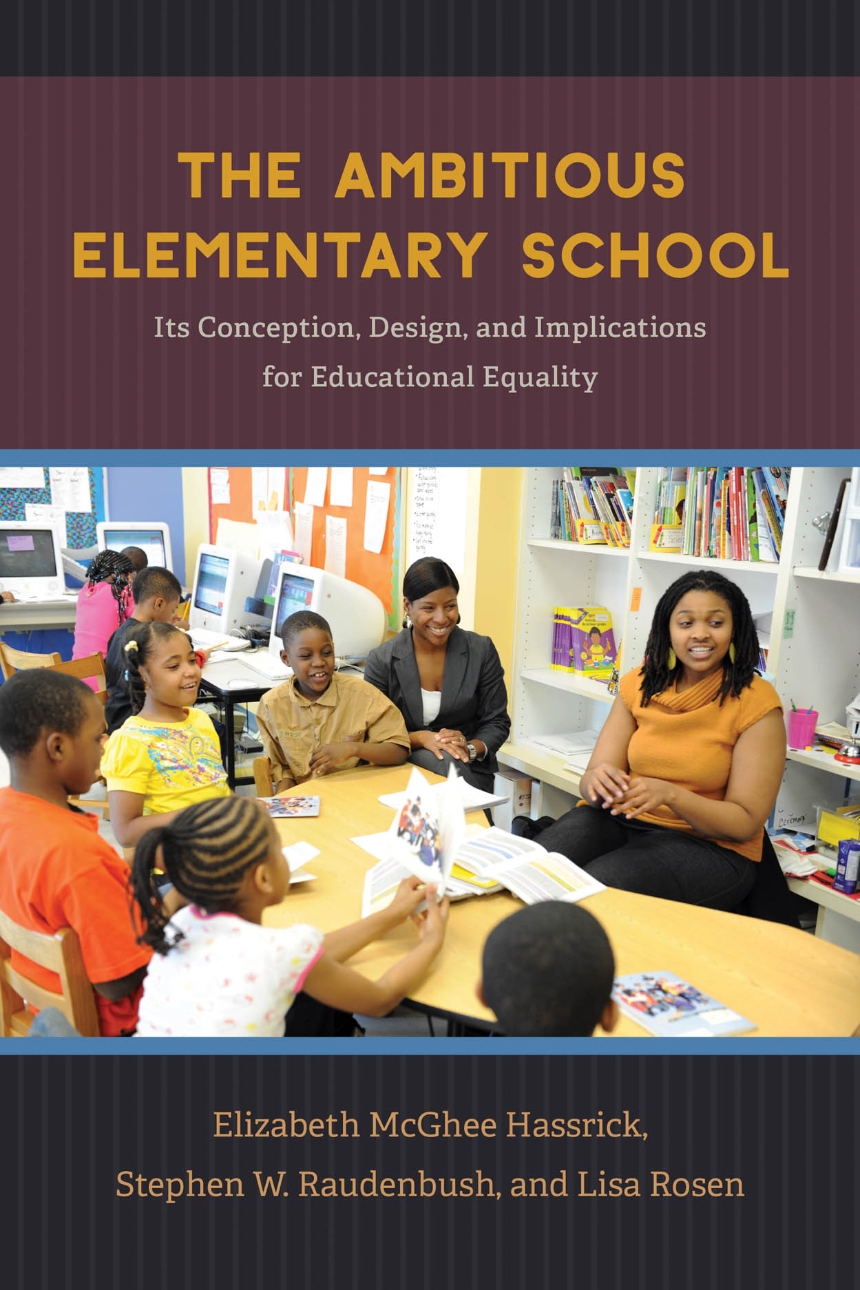The Ambitious Elementary School
Its Conception, Design, and Implications for Educational Equality
9780226456652
9780226456515
9780226456799
The Ambitious Elementary School
Its Conception, Design, and Implications for Educational Equality
The challenge of overcoming educational inequality in the United States can sometimes appear overwhelming, and great controversy exists as to whether or not elementary schools are up to the task, whether they can ameliorate existing social inequalities and initiate opportunities for economic and civic flourishing for all children. This book shows what can happen when you rethink schools from the ground up with precisely these goals in mind, approaching educational inequality and its entrenched causes head on, student by student.
Drawing on an in-depth study of real schools on the South Side of Chicago, Elizabeth McGhee Hassrick, Stephen W. Raudenbush, and Lisa Rosen argue that effectively meeting the challenge of educational inequality requires a complete reorganization of institutional structures as well as wholly new norms, values, and practices that are animated by a relentless commitment to student learning. They examine a model that pulls teachers out of their isolated classrooms and places them into collaborative environments where they can share their curricula, teaching methods, and assessments of student progress with a school-based network of peers, parents, and other professionals. Within this structure, teachers, school leaders, social workers, and parents collaborate to ensure that every child receives instruction tailored to his or her developing skills. Cooperating schools share new tools for assessment and instruction and become sites for the training of new teachers. Parents become respected partners, and expert practitioners work with researchers to evaluate their work and refine their models for educational organization and practice. The authors show not only what such a model looks like but the dramatic results it produces for student learning and achievement.
The result is a fresh, deeply informed, and remarkably clear portrait of school reform that directly addresses the real problems of educational inequality.
Drawing on an in-depth study of real schools on the South Side of Chicago, Elizabeth McGhee Hassrick, Stephen W. Raudenbush, and Lisa Rosen argue that effectively meeting the challenge of educational inequality requires a complete reorganization of institutional structures as well as wholly new norms, values, and practices that are animated by a relentless commitment to student learning. They examine a model that pulls teachers out of their isolated classrooms and places them into collaborative environments where they can share their curricula, teaching methods, and assessments of student progress with a school-based network of peers, parents, and other professionals. Within this structure, teachers, school leaders, social workers, and parents collaborate to ensure that every child receives instruction tailored to his or her developing skills. Cooperating schools share new tools for assessment and instruction and become sites for the training of new teachers. Parents become respected partners, and expert practitioners work with researchers to evaluate their work and refine their models for educational organization and practice. The authors show not only what such a model looks like but the dramatic results it produces for student learning and achievement.
The result is a fresh, deeply informed, and remarkably clear portrait of school reform that directly addresses the real problems of educational inequality.
240 pages | 7 halftones, 13 tables | 6 x 9 | © 2017
Education: Curriculum and Methodology, Education--Economics, Law, Politics, Education--General Studies, Pre-School, Elementary and Secondary Education, Psychology and Learning
Reviews
Table of Contents
Acknowledgments
Part I: Lessons from Research and Practice1 Introduction
2 Can School Improvement Reduce Inequality? Lessons from Research
3 Origins of the Model: Lessons from Practice (1989–1998)
Part II: A Model of Instructional Practice and School Organization
4 Organizing Principles of the University of Chicago Charter School (2008–2012)
5 Designing Reading Instruction to Overcome Educational Inequality
Coauthor: Molly Branson Thayer
6 Designing Math Instruction to Overcome Educational InequalityCoauthors: Debbie A. Leslie, Sarah Burns, and Andy Isaacs
7 Organizing the School to Support Ambitious InstructionCoauthor: Tamara Gathright-Fritz
Part III: Impact and Implications8 The Impact of Attending an Ambitious Elementary School
Coauthor: Daniel Schwartz
9 Producing Knowledge for School ImprovementNotes
References
Index
References
Index
